What began as one residential landscape project expanded to two distinct areas when the homeowner purchased an adjacent lot. Lindgren Landscape in Fort Collins, CO took this impressive project from start to finish.
Imagine designing and building one project, and then having the clients offer you a second, totally different one.
The big question: how do you meld a small, intimate space to an entire city lot?
Not only did Tim Lindgren, owner of Fort Collins, CO-based Lindgren Landscape, come up with an answer, but his solution was good enough to be recognized by Hardscape North America (HNA) for its use of concrete pavers in a residential space of less than 3,000 square feet.
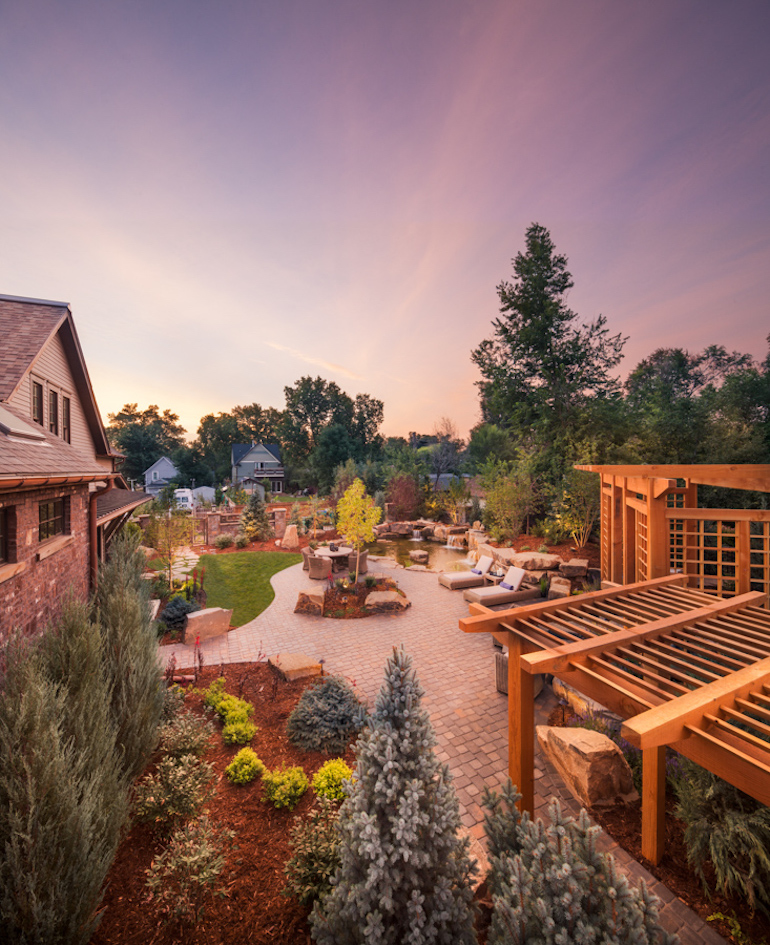
Lindgren explains that his company was initially contacted by the buyers of a residential lot in what’s known as Old Town Fort Collins, an area of older homes in this university town in north central Colorado.
“They were going to scrape the house and start new,” he says. “And, they had some pretty lofty goals for the site. They interviewed us and we won the design-build portion of the landscape.”
He says work on the new home was about halfway completed before Lindgren Landscape got involved with the project on what had become a bare lot.
“They entertain a lot, so having a place to host large parties was a big piece of what they wanted,” Lindgren explains. “They also wanted a sense of unity between the indoor and the outdoor. They wanted to be able to open their doors and feel like the outdoors was an extension of the interior of the house, so we used a lot of the same materials, masonry-wise, and finishes that tied in with the interior of the house.”
It sounds simple enough, but the reality was something different. Because of the lot size, the clients only had a small courtyard on the west side of the house for the outdoor living space, and it needed to incorporate a grill/outdoor kitchen, a fire feature, and a water feature.
Additionally, because the clients asked that the entire lot be surrounded by a courtyard wall and masonry fence, drainage became a major issue.
With footers poured to a depth of 30″, the wall is mainly concrete masonry block.
“We used decorative iron for detail in between the posts above the wall, along with some rustic wood,” says Lindgren. “The house has some brick and some natural stone and some old wood from a barn that was used for decorative features, and we used the same elements in the wall that surrounds the property.”
Lindgren describes the home’s courtyard as having a contemporary feel. For instance, the water feature is three concrete slabs mounted in front of the neighbor’s garage wall and lit from below with lighting hidden in a seat wall.
“It took a ton of design and planning,” says Lindgren about his favorite feature of the project. “We had to have custom-fabricated concrete slabs, and custom steel fasteners to hold it together. The interior basin was waterproofed by a pool and spa company.
“It’s as custom a water feature as we’ve done, and it was really fun to dream it up, design it, and then see it fabricated.”
Also, custom is the rectangular concrete fire pit, which measures 7′ x 3′ and required a custom-made burner. The grilling area is all stainless steel and stone, with built-in cabinets.
Although the surface of the courtyard is Belgard pavers, “Because of the courtyard wall and masonry fence the whole property trapped water,” says Lindgren. “To get the water out of there, we had to have an engineer come in and do a gradient drainage plan, we had to do a trench drain through the middle of the courtyard with a decorative grate, and then we had to pipe everything into the street.”
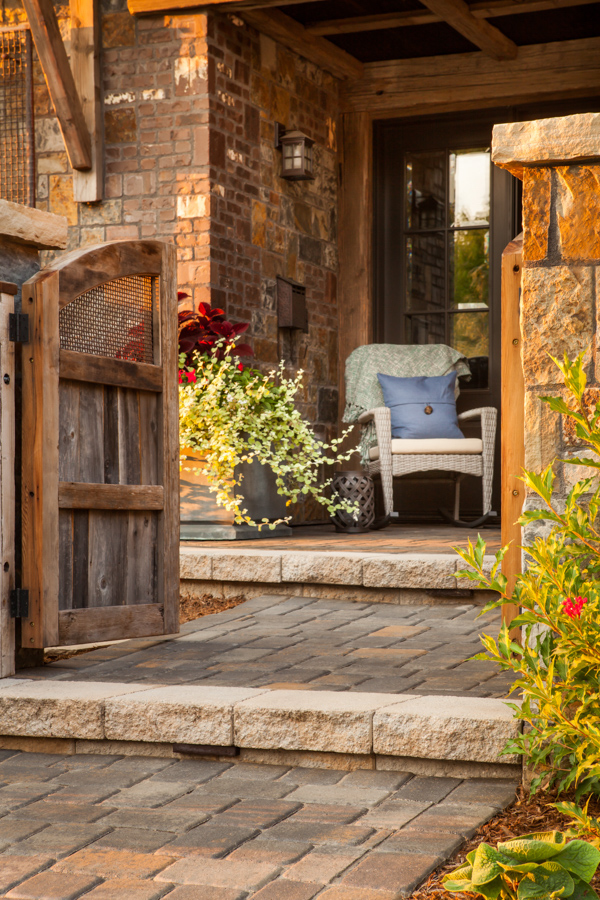
Further complicating the matter, Fort Collins city regulations required that because the outflow would be into the street, it was necessary to do a traffic plan to reroute foot traffic and close the sidewalk while demolition and installation took place.
Softscaping for the patio featured container plants and planters built within the masonry walls and benches.
Act Two Of Landscape Design
Lindgren Landscape was just about through with the patio portion of the project — one which required the company to work around both the subcontractors it had contracted with for features such as the masonry and the general contractor’s subs who were finishing up work on the house itself — when the owners sprung a little surprise on the landscape firm: they had bought the adjacent lot and needed it landscaped, as well.
“The lot next to it was basically the same size they had, but without the house on it,” says Lindgren. “That added five or six times the amount of square footage. It got substantially larger.”
Given the work the company had already done, including the courtyard walls, Lindgren chose to create a whole different atmosphere in the much larger space.
“We took the courtyard wall and put in a big rustic wooden door,” he explains. “You open that and walk out and it’s a whole different experience. It’s a more rustic feel with boulder water features, boulders set into the patios and two pergolas. It’s a whole different experience.”
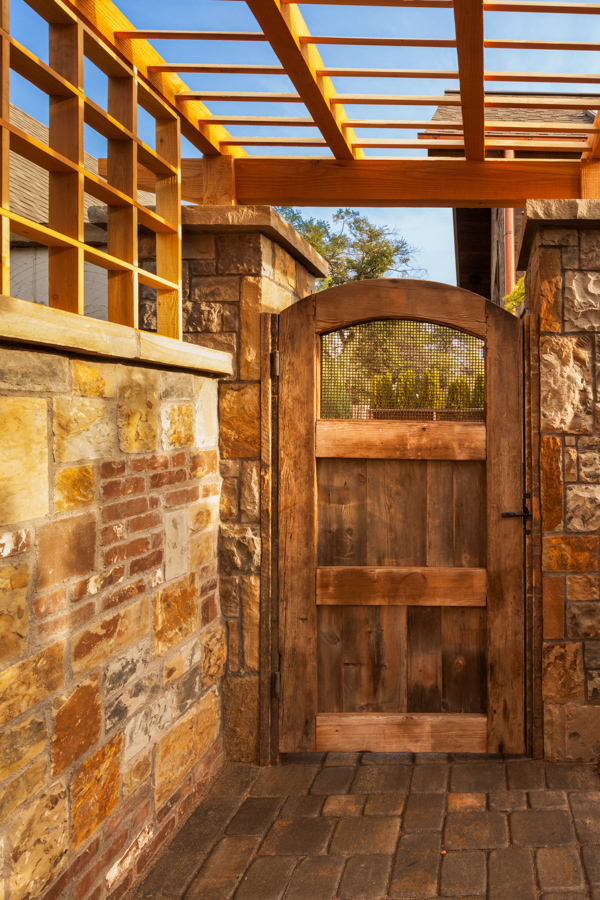
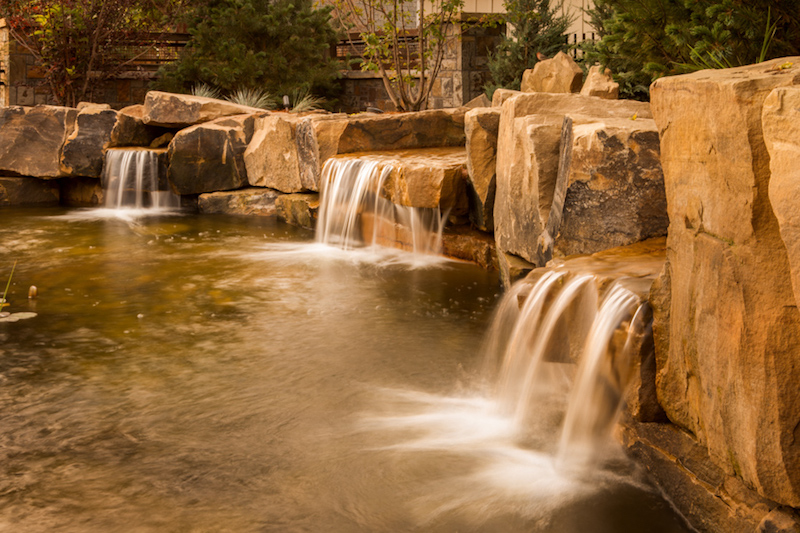
An excellent example of that difference is in the water feature. The large lot includes a 50′ x 50′ pond with boulders, three waterfalls, and a host of lily pads.
“It’s a very natural-looking water feature,” Lindgren observes.
The larger area also makes use of the same Belgard pavers, but not in any formal way.
“We continued the pavers for the walking surface, but the interior courtyard is all straight lines and rectilinear design, while the backyard patio is very curvilinear,” he says. “And, the seating areas include boulders. It’s a much more organic feel.”
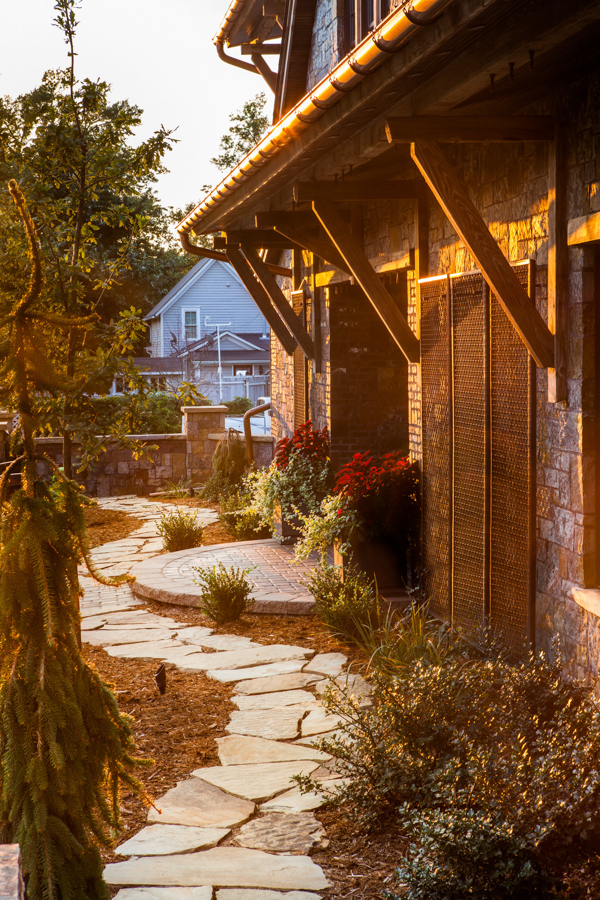
The larger area includes an elevated paver patio which makes use of one of the two pergolas incorporated into the project.
“It’s probably 15′ x 20′ and the pergola is about eight feet tall,” Lindgren says. “It provides some structure above and the vertical part of the structure will allow vines to grow so it has a lattice feel on the walls for privacy.”
The second structure is set in the area just outside the door from the courtyard and provides some direction for people using the larger space.
“It’s above an L-shaped walkway,” he explains. “You go through the door, turn left and the structure guides you along and presents the backyard.”
As with the initial courtyard, the clients had a real desire for privacy. However, in this case, Lindgren was able to provide it through plantings.
“We did an extensive amount of planting around the perimeter, even knowing that eventually they’re going to have to maintain them pretty extensively to keep them in order,” he says. “They wanted an instant barrier between their neighbors, so we used a lot of trees. They’re mostly ornamental, so we put in upright junipers in the 10-12-foot range and some columnar spruce — a lot of evergreens.”
Additionally, softscape was used to set off the water feature, including conifer and deciduous trees that he describes as “pretty natural-looking.”
Lighting for the project features several dozen different lamps of different styles from FX Luminaire which are all dimmable and done by zone. Water features are lit both in and out of the water.
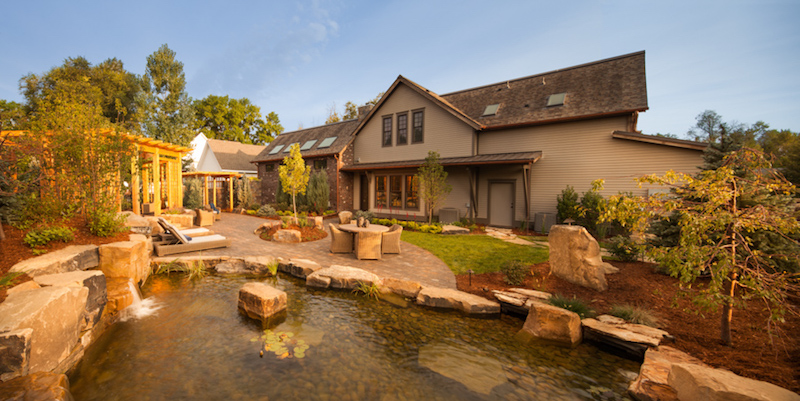
While Lindgren is most proud of the water feature in the courtyard, it’s water that also proved to be the most challenging — and educational — aspect of the job, which took almost 18 months from when he first met with the clients to completion of the large lot, and utilized as many as 10-12 employees and subs on the site during construction.
“We were basically creating a giant bathtub and making sure we had good drainage was at the top of our list,” he says. “It all drained beautifully, but we really learned a lot about drainage including 100-year storms and how quickly water needs to leave the site to make room for the next amount. It was working at a whole other level, and fortunately we had some engineers who helped lead the way on that.”
Schipper is a writer and editor specializing in B2B publishing. She is a partner in Word Mechanics, based in Palm Springs, CA.











![[VIDEO] Dickies®: Discover Workwear That’s Anything But Uniform](https://turfmagazine.com/wp-content/uploads/2023/06/1647663814-4b1a2a7742790a9b1e97a3b963477850192e1d6a9dfba9b07214a77bae25d6e3-d-218x150.jpg)



























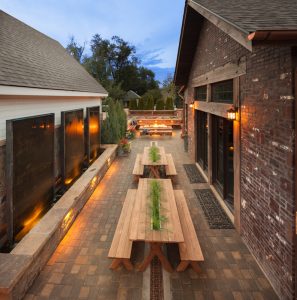
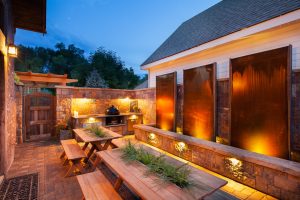
![[VIDEO] Dickies®: Discover Workwear That’s Anything But Uniform](https://turfmagazine.com/wp-content/uploads/2023/06/1647663814-4b1a2a7742790a9b1e97a3b963477850192e1d6a9dfba9b07214a77bae25d6e3-d-324x160.jpg)